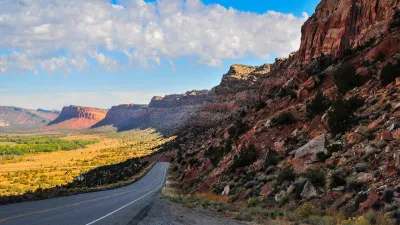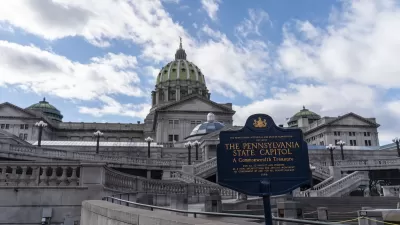The computing power required to mine bitcoins has drawn companies to Washington for the state's cheap, hydroelectric generated power.
"Following the lure of cheap electricity, Bitcoin miners and their power-hungry server farms are making out for sleepy little towns in the Pacific Northwest," reports Sarah Zhang.
Although it doesn't have the same environmental impacts as an aggregate mine or, say, fracking, the production of bitcoins still requires the use of natural resources. "Although Bitcoin is a digital currency, mining it still has a gigantic physical footprint. That's because computers 'mine' Bitcoin by solving a cryptographic equation. To mine more Bitcoin, you need more computing power. Or you can just have more computers."
That means electricity, and in Washington that means hydroelectric power. "Last year, Bitcoin miners were sucking up an estimated 1 million kilowatt-hours per day. That's a hefty electric bill right there. But Washington has some of the lowest electricity rates in the country—less than 2 cents per kilowatt-hour for industrial customers in certain area. The average U.S. household pays something more like 12 cents a kilowatt-hour."
FULL STORY: Why Bitcoin Miners Are Moving to Tiny Towns in Washington State

Study: Maui’s Plan to Convert Vacation Rentals to Long-Term Housing Could Cause Nearly $1 Billion Economic Loss
The plan would reduce visitor accommodation by 25,% resulting in 1,900 jobs lost.

North Texas Transit Leaders Tout Benefits of TOD for Growing Region
At a summit focused on transit-oriented development, policymakers discussed how North Texas’ expanded light rail system can serve as a tool for economic growth.

Why Should We Subsidize Public Transportation?
Many public transit agencies face financial stress due to rising costs, declining fare revenue, and declining subsidies. Transit advocates must provide a strong business case for increasing public transit funding.

How to Make US Trains Faster
Changes to boarding platforms and a switch to electric trains could improve U.S. passenger rail service without the added cost of high-speed rail.

Columbia’s Revitalized ‘Loop’ Is a Hub for Local Entrepreneurs
A focus on small businesses is helping a commercial corridor in Columbia, Missouri thrive.

Invasive Insect Threatens Minnesota’s Ash Forests
The Emerald Ash Borer is a rapidly spreading invasive pest threatening Minnesota’s ash trees, and homeowners are encouraged to plant diverse replacement species, avoid moving ash firewood, and monitor for signs of infestation.
Urban Design for Planners 1: Software Tools
This six-course series explores essential urban design concepts using open source software and equips planners with the tools they need to participate fully in the urban design process.
Planning for Universal Design
Learn the tools for implementing Universal Design in planning regulations.
Ascent Environmental
Borough of Carlisle
Institute for Housing and Urban Development Studies (IHS)
City of Grandview
Harvard GSD Executive Education
Toledo-Lucas County Plan Commissions
Salt Lake City
NYU Wagner Graduate School of Public Service





























